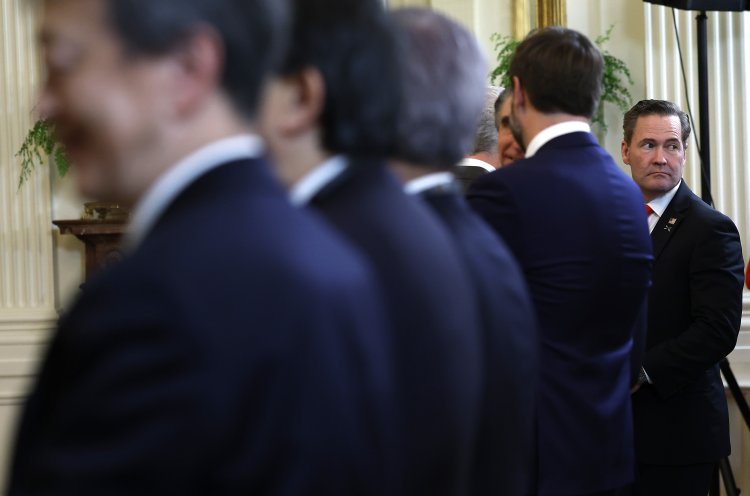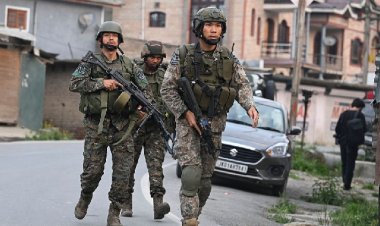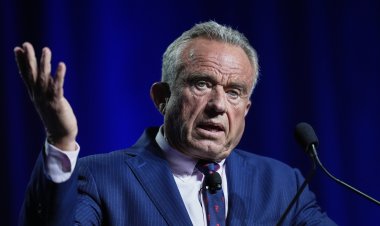A Tug-of-War Emerges Within the Republican Party Regarding Waltz's Signal Chat
"Both sides are using this scandal to advance their agenda," said one Republican Senate staffer. This article explores how the scandal is being leveraged by different factions for their own political interests.

This division highlights Waltz's distinctive role within the administration. Traditional defense hawks, who prioritize national security, tend to support Waltz's continued presence. They see him as someone capable of articulating a more assertive foreign policy to MAGA supporters who are skeptical of conventional Republican strategies. This perspective aligns with initiatives such as advocating military action against Iran-affiliated factions in Yemen or enhancing the U.S. stance against Russia.
In contrast, some conservative commentators who regard Waltz's views as overly neoconservative are using this incident to fuel discussions about his potential ousting.
The ongoing debate in Washington reveals the struggle among various factions for influence over President Trump’s foreign policy direction and, consequently, the future platform of the Republican Party, as corroborated by interviews with five individuals familiar with the administration's inner workings. All were granted anonymity to discuss the party's dynamics.
Many of Waltz's supporters, aware of the criticisms he faces, are underscoring his significance to the president’s foreign policy agenda. “Waltz is integral to Trump’s plans to restore American strength abroad,” remarked one individual close to the administration. “There’s no doubt he screwed up here, but he can own it and move on.”
Waltz's position seems secure for now, as Trump praised him in a Cabinet meeting on Tuesday afternoon, describing him as a “very good man” and asserting that the operation in Yemen was ultimately “totally successful.”
“You have to learn from every experience. I think it was very unfair the way they attacked Michael,” the president commented about Waltz, who was present during the meeting. Trump directed his criticism at Jeffrey Goldberg, the Atlantic journalist who accessed the Signal group chat, labeling him a “sleazebag.”
However, Trump's history of changing his stance amid public controversies leaves room for uncertainty. Waltz's allies fear that some factions within the MAGA movement may continue to discreetly advocate for his dismissal, whether over “Signalgate” or other issues. “They want an excuse to knife Waltz in the back because they think, erroneously, he isn’t in line with Trump’s foreign policy agenda,” the administration insider stated.
As Trump adjusts to his role in the Oval Office, rifts are widening within various Republican foreign policy circles. One faction aligns closely with a MAGA-influenced interpretation of former President Ronald Reagan’s “peace through strength” doctrine, emphasizing proactive military measures and bolstering U.S. alliances. Another faction seeks to fundamentally reevaluate U.S. foreign policy, questioning current alliance structures and military engagements abroad, a viewpoint championed by Vice President JD Vance and notable conservative voices like Tucker Carlson. Vance, as evidenced by the group chat records disclosed by the Atlantic, had expressed opposition to military action in Yemen.
“There’s clearly a debate in the party on whether we’ll stick with ‘peace through strength’ or an entirely new brand of America First that upends that,” a senior Republican Senate staffer observed. “And surprise surprise: Both sides are using this scandal to advance their agenda and say someone from the other side should be blamed or fired.”
The staffer mentioned the existence of numerous group chats among GOP staffers, administration officials, and external Republican advisors discussing the implications of the Signalgate scandal and whether disciplinary actions should be taken. “We all made sure no reporters are in those chats,” the staffer joked.
Waltz has garnered support from key GOP figures such as House Speaker Mike Johnson, who stated on Monday night that the national security adviser should “absolutely not” resign, emphasizing his exceptional qualifications for the role.
Sen. Jim Banks expressed skepticism regarding the credibility of the Atlantic’s reporting and defended Waltz based on their longstanding relationship. “This relationship goes back way before being named to the position. I mean, he traveled on the campaign almost non-stop… with candidate Trump," Banks said, adding that Waltz has President Trump's confidence on critical national issues.
He further pointed to the success of the strikes in Yemen despite the information shared in the Signal chat. “I think the reason he's standing by Mike Waltz is because it was such a successful strike and it accomplished the mission.”
Waltz played a central role in coordinating the U.S. strikes in Yemen via the group chat, where Vance expressed opposition to the military operation. After the strike, Waltz communicated excitement in the group chat, sending emojis of a punch, an American flag, and a flame.
Some defend that the focus should be on Defense Secretary Pete Hegseth. According to the Atlantic, while Waltz established the group chat mistakenly including a journalist, it was Hegseth who divulged the most sensitive information, including strike targets and attack arrangements before the military engagement.
“If [Waltz] made a mistake in setting up the group, the rest erred in chiming in on it,” said another individual familiar with the administration’s inner workings.
A former defense official pointed out that although significant political effort was expended to get Hegseth through Senate confirmation despite allegations of sexual assault, heavy drinking, and abuse, he remains “disposable” and could be replaced without major fallout for the White House.
The National Security Council responded vigorously to claims of factions competing within the administration.
“Anyone trying to drive a wedge between the national security leadership team misses the fact that these are professionals who collaborate and decisively carry out the president’s strong national security agenda,” said National Security Council spokesperson Brian Hughes. He praised Hegseth’s leadership and the overall effectiveness of the national security team, underscoring their success in the operation against Houthi terrorists.
Waltz notably introduced Hegseth during the latter’s Senate confirmation process amid a contentious battle.
“They are brothers-in-arms who have put their lives on the line in defense of the American people in combat. They are friends, colleagues and work side-by-side to ensure President Trump’s peace through strength agenda is fully implemented,” Hughes added.
According to Pentagon spokesperson Sean Parnell, the two share a close working relationship and have been personal friends for several years, and they will continue collaborating to execute President Trump’s America First agenda.
Regardless of how these internal discussions evolve, Republican lawmakers are expressing frustration over the security risks associated with the group chat—despite assertions from top Trump intelligence officials at a heated congressional hearing today that no classified information was shared. The Atlantic article suggested otherwise, noting that the attack was discussed prior to its execution.
“I think the whole thing is very unfortunate. We cannot allow it to happen again,” remarked Sen. John Barrasso.
“I just want folks to own up to their mistakes and not blame the Atlantic or the reporter. Be honest,” urged Rep. Don Bacon. “The worst part of this was transmitting highly classified information on an unclassified system, and one that Russia and China were clearly monitoring.”
Sanya Singh for TROIB News












